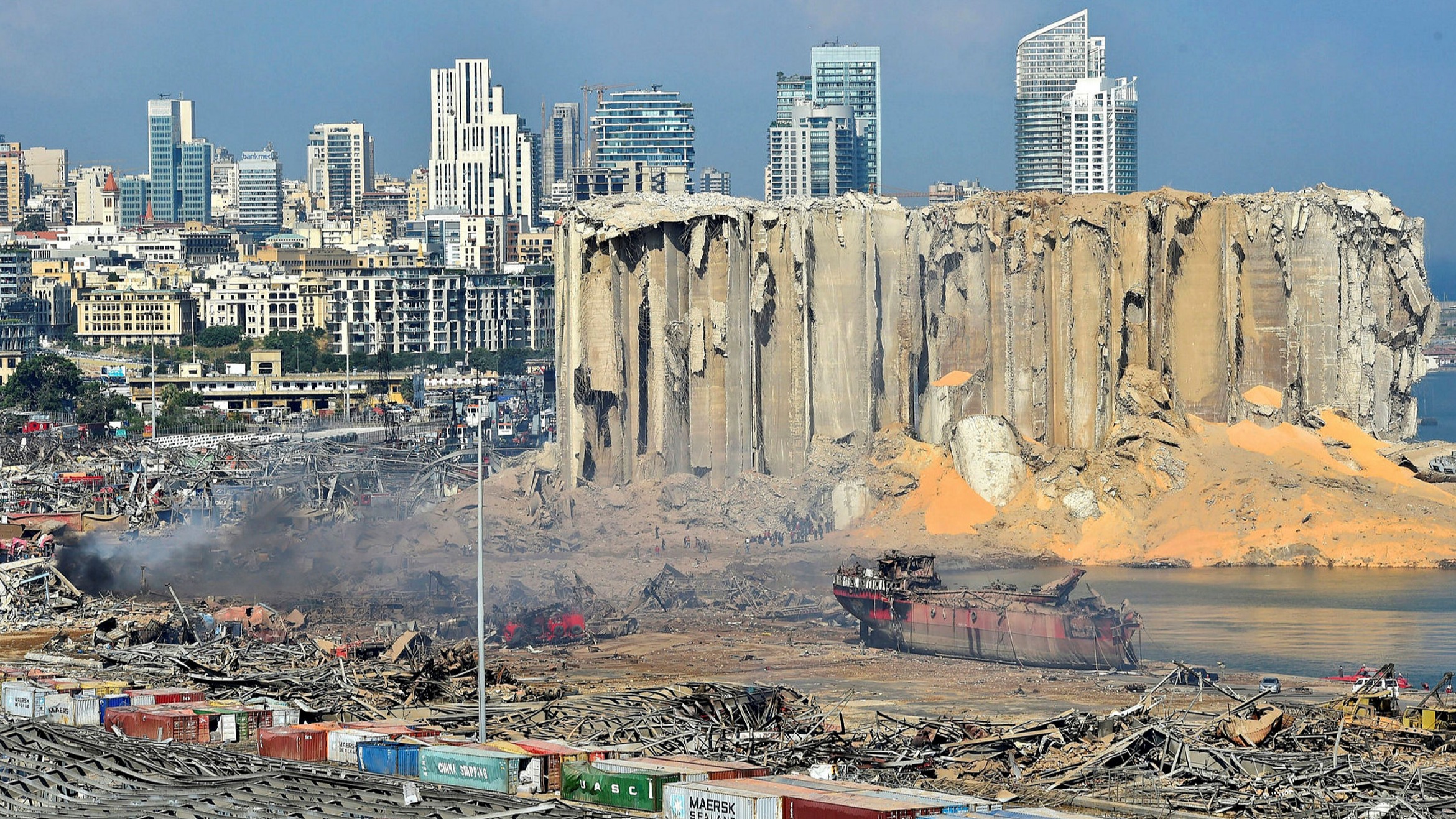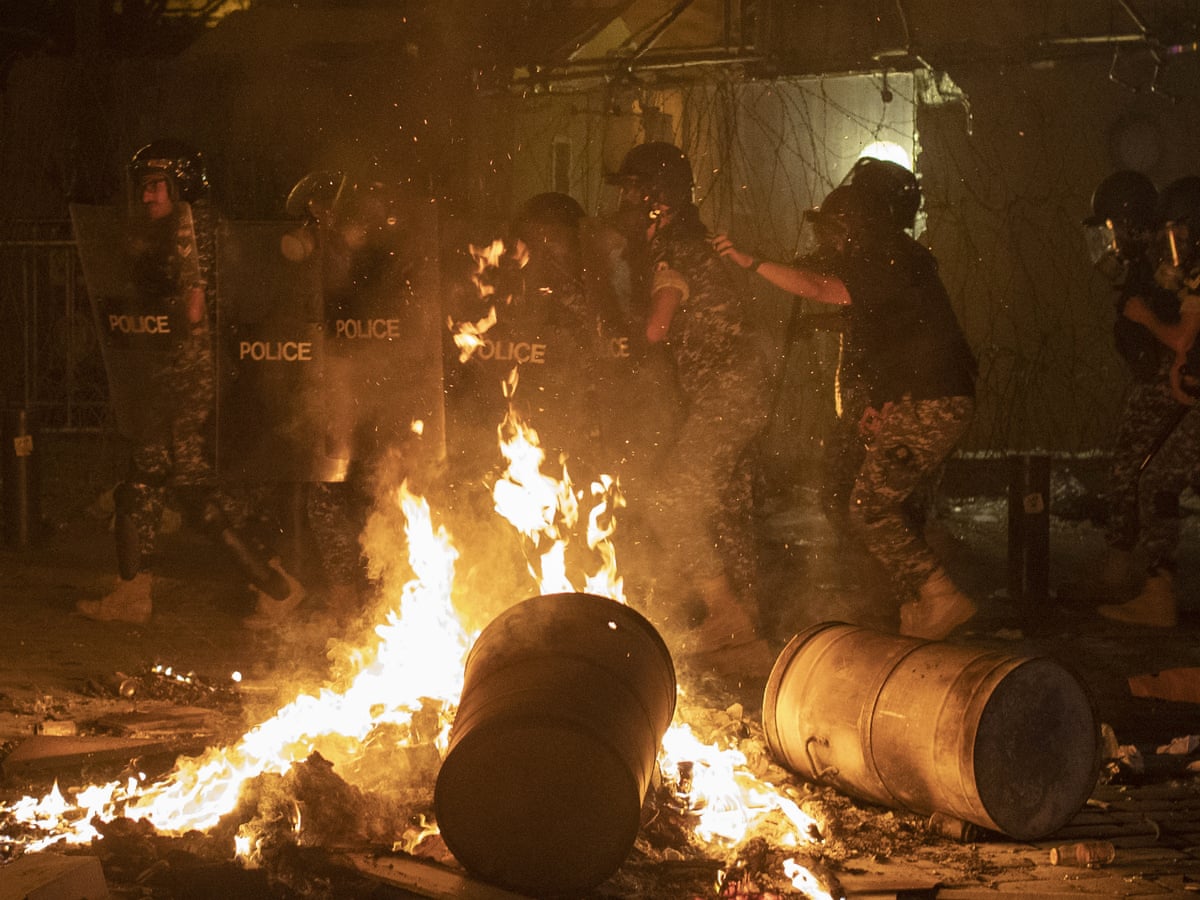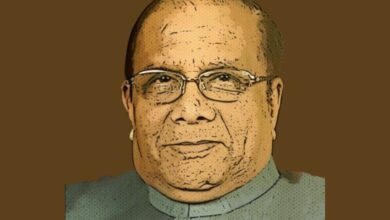Police responded with tear gas to a demonstration that left several wounded. The president of Beirut raises the possibility that external interference such as “a rocket or a bomb” could be related to the detonation.
Protests against the Lebanese government have been reignited amid chaos and anger over the devastating explosion in Beirut on Tuesday, in which at least 154 people have died and more than 5,000 injured.
Lebanese security forces used tear gas late Thursday to disperse dozens of protesters enraged by the explosion in the capital’s port, which many citizens blame on the negligence and incompetence of the authorities. The deposit that flew through the air causing a shock wave that affected much of the city contained 2,750 tons of ammonium nitrate stored since they were transferred from a ship six years ago.

Dozens of people tried to enter the Lebanese Parliament in an impromptu demonstration. There they chanted the same slogans that citizens have repeated since last October when a new law for WhatsApp calls sparked popular outrage. They demand the resignation of the government en bloc, early elections, immediate economic reforms and an independent judicial system.
Several protesters destroyed shops and set fire to piles of debris left by the explosion, ending the now usual stone-throwing at the police. After almost a month of hiatus due to the spread of the coronavirus and the daily struggle to survive in a country in deep crisis, activist platforms have been reactivated to call for a demonstration on Saturday afternoon in Beirut. In the face of mounting tension
Attendance at the protest will serve as a thermometer of the strength of the civil protest movement after the tragedy. Some activists fear the demonstrations are “violent.” “If people don’t go down to the street, it’s a game over (end) for the revolution ”, said the lawyer Ali Mrad. 
For the 39-year-old activist, the responsibility for the explosion and its aftermath rests with the entire political system, and not with a handful of port officials now under house arrest while investigating how the port depot exploded. “The Lebanese system rests on the political pillar shared by confessional leaders and on the economic one, with the banks at the centre,” says the lawyer. “Both systems have collapsed even before some protests that after the colossal explosion has gone from demanding reforms to seeking revenge.”
After nine months of protests, slowed down in recent months by the pandemic, the different groups of activists have still not managed to form a united front that proposes concrete measures to overcome the crisis. “Macron has made it very clear: the system has to change, but there is no solid alternative for now,” says Rami Rajeh, a member of the opposition political platform Beirut Medina.
The French president visited Beirut on Thursday and warned its leaders that it is time for profound reforms to lift the country out of the crisis. “Our objective is in the next two weeks to provide that concrete alternative and create a united front to weaken the Government,” says Medina. As he talks to the phone, he can hear the clink of glass that has become the city’s soundtrack since Tuesday.
 The rage unleashed by the explosion was palpable on Thursday during French President Emmanuel Macron’s tour of the Christian neighbourhood of Ashrafi, the most affected by the incident, where hundreds of residents accompanied him shouting “Revolution”, “Down with the corrupt government!”, “Do not help our leaders!”.
The rage unleashed by the explosion was palpable on Thursday during French President Emmanuel Macron’s tour of the Christian neighbourhood of Ashrafi, the most affected by the incident, where hundreds of residents accompanied him shouting “Revolution”, “Down with the corrupt government!”, “Do not help our leaders!”.
In addition, Lebanese politicians and ministers who showed up in the affected area were received with stones, boos and bottle blow. The scale of the tragedy has led the Lebanese to also explain to the French leader their lack of confidence in the Government’s ability to carry out an independent investigation into what happened and to manage the promised international aid. “I guarantee you that aid will not fall into corrupt hands,” Macron promised in front of the cameras.
The catastrophe and the lack of reforms are already causing tension within the Executive, formed at the beginning of years. The first to resign from his post was the Foreign Minister, Nasif Hiti, last Monday, while the Interior Minister, Mohammed Fahmi, has warned that he will leave his post if “the investigation committee does not name those responsible in the five agreed deadline days ”, starting on Tuesday, when the disaster occurred. This Friday, the Lebanese ambassador to Jordan, Tracy Chamoun, left office “in protest of the negligence, lies and theft of the State.”
Although the Lebanese government initially blamed the mismanagement of the ammonium nitrate warehouse at the origin of the catastrophe, the Lebanese president, Michel Aoun, pointed out this Friday the hypothesis of external interference. “The cause has not yet been determined.
There is the possibility of external interference through a rocket or bomb or other act, “he told local media, after denouncing the negligence of having stored the material, highly reactive with other substances, for years in the port. For his part, the state commissioner before the Lebanese military court, Fadi Akiki, announced that so far 16 people have been arrested and their bank accounts intervened in the framework of the investigations, including several high-ranking officials of the port authority.:no_upscale()/cdn.vox-cdn.com/uploads/chorus_image/image/67161557/GettyImages_1227923750.0.jpg)
The leader of the Shiite party-militia Hezbollah, Hasan Nasrallah, in a long-awaited televised speech, denied this Friday that God’s Party controls the port of Beirut or that there were militia weapons at the site, and has criticized the “political exploitation” by those who have tried to accuse their formation of the tragedy, in which “citizen martyrs of all confessions have fallen”, including several of their followers and members.
Hezbollah is a key piece in the government, which it controls together with its Shiite ally Amal and the main Christian party, the Free Patriotic Movement. The Shiite leader has urged cooperation and solidarity and warned against “any sectarian instigation.” Likewise, he has assured that “the result of the investigation should not take long” and has welcomed international cooperation.
As tension increased among the population on Thursday, rescue teams intensified their search for the more than 100 missing. “One person has been recovered alive and four dead,” an officer at the epicentre of the explosion told this newspaper in the early hours of Friday, amidst an intense bustle of cranes, ambulances and search teams. Among the deceased was a three-year-old boy.
Several points of the port were still smoking and you could still breathe the traces of gases released in the explosion. The country’s Health Minister, Mohamad Hasan, said this Friday that at least 120 wounded are in critical condition and stressed that in some cases the crystals that were blown up after the explosion in a radius of several kilometres have forced to submit to those injured in “minute surgeries.” While the wounded are treated, the trail of masses and funerals for the victims continues in the most affected neighbourhoods.
International aid also wants to alleviate the saturation of the health system, for which five field hospitals have been promised in the city. “What we need most right now are field hospitals in different areas of Beirut,” said Hasan, who has also expressed fear that coronavirus infections, which exceed 5,000, will skyrocket in Lebanon due to the emergency situation in found the sinister city.
The authorities have declared a state of emergency for Beirut and have released a budget of 100 billion Lebanese pounds to face the disaster.

The presidents of the European Commission, Ursula von der Leyen, and the European Council, Charles Michel, have urged the countries of the European Union to intensify their support for Lebanon. In a joint letter addressed to EU leaders they are grateful for the “immediate support expressed by many” of the States and for the assistance that has already been provided, in particular through the European Civil Protection Mechanism, which was activated right after the explosion.
A conference will also be convened this Sunday via video conferencing. In addition, the President of the European Council plans to travel to Beirut this Saturday.
THE EU FEARS DESTABILISATION IN THE REGION
The European Union is determined to turn to aid with Lebanon given the risk that the disaster at the port of Beirut will further aggravate the situation in a country mired in a deep political and economic crisis. Brussels fears that the new coup, which coincides with the scourge of COVID-19, will end up irreversibly destabilising a state that is home to the largest number of refugees per capita in the world.
The Lebanese debacle further complicates the situation in the Mediterranean, where Europe faces the threats of civil war in Libya, growing tension with Turkey and the never-ending conflict in Syria. The president of the European Council, Charles Michel, will visit the Lebanese capital tomorrow to visualise European solidarity.
Michel will also represent the EU in the donor video conference that French President Emmanuel Macron is scheduled to hold on Sunday. Macron was the first world leader to move after the explosion that devastated a good part of the Lebanese capital last Tuesday. Michel and the President of the European Commission, Ursula von der Leyen, have written to the 27 countries of the Union to “intensify support for Lebanon both in the immediate needs and with a view to the long-term reconstruction of the country”.
Michel and Von der Leyen remind European presidents that “Lebanon is a country of strategic importance” for the EU. The Commission estimates that the country has received more than 1.5 million refugees from Syria, an exodus that accounts for almost 30% of the Lebanese population. “The highest percentage in the world”, recall community leaders in their letter.
Since the beginning of the Syrian war in 2011, the EU has provided Lebanon with more than 2.3 billion euros in financial assistance. “But now it will be needed more than ever with the dramatic humanitarian and reconstruction needs that have emerged,” warn Von der Leyen and Michel. The Commission has already mobilised € 33 million in emergency aid after Tuesday’s explosion.
It is part of the package already announced in June when the aid was intended to alleviate the effects of the pandemic and the resources reserved to provide drinking water, medical equipment and hygiene material. Now part of the assistance will also have to be used for emergency actions and the protection of essential infrastructure. Brussels stands ready to mobilise new financial resources as needs are verified on the ground. The Commission has also activated the European Civil Coordination Mechanism, through which it has coordinated the dispatch of 300 people specialised in rescue and emergency tasks.




